Directions (1-5): Study the following information to answer the given questions. In a certain code language,
‘Abroad return happy start’ is written as ‘mt gu hb st’
‘Return justice dispute peace’ is written as ‘tk hb da pu’
‘Dispute abroad decide verdict’ is written as ‘nh pt tk gu’
‘Peace special happy dispute’ is written as ‘da st rx tk’
Q1. In the given code language, what does the code ‘pt’ stand for?
(a) Either ‘abroad’ or ‘happy’
(b) start
(c) dispute
(d) Either ‘verdict’ or ‘decide’
(e) special
Q2. What is the code for ‘peace’ in the given code language?
(a) tk
(b) rx
(c) st
(d) da
(e) Other than those given as options
Q3. What is the code for ‘return’ in the given code language?
(a) nh
(b) hb
(c) gu
(d) pu
(e) rx
Q4. What may be the possible code for ‘peace justice’ in the given code language?
(a) ve bd
(b) da nh
(c) nh ve
(d) pu da
(e) mt da
Q5. If ‘dispute happy home’ is written as ‘aj tk st’ in the given code language, then what is the code for ‘home justice start’?
(a) aj gu nh
(b) pu aj mt
(c) nh mt pu
(d) mt da aj
(e) aj hb pu
Directions (6-8): Study the following information carefully and answer the questions given below:
There are seven family members P, Q, R, S, T, U and V, in which there are two married couples. P is sister of Q. Q is son of T’s daughter. R is sister-in-law of V who is father of P. U is the mother of R. U is married to T.
Q6. What is the relation between Q and R?
(a) Q is the son of R
(b) Q is the nephew of R
(c) R is the father of Q
(d) Q is daughter-in-law of R
(e) None of these
Q7. Who among the following is husband of U?
(a) V
(b) T
(c) P
(d) R
(e) None of these
Q8. How is S related to U?
(a) Brother
(b) Father
(c) Sister
(d) Daughter
(e) None of these
Q9. How many such pairs of letters are there in the word ‘NATIONWIDE’ each of which has as many letters between them in the word as in the English alphabet?
(a) None
(b) One
(c) Two
(d) Three
(e) More than three
Q10. If the expression ‘A = B > C ≤ F < G ≥ E’ is true, then which of the following will can never be true?
(a) A > C
(b) A > B
(c) G > F
(d) C < G
(e) B > C
Q11. A person starts from the office, walks 5 km towards North, takes a left turn and walks for 7 km. He then takes a right turn and walks for 6 km before taking a right turn again and walks for further 7 km then finally takes a left turn and walks 3 km before reaching his home. How far and towards which direction he is from his office?
(a) 14 km towards North
(b) 10 km towards East
(c) 12 km towards South
(d) 10 km towards West
(e) 11 km towards North
Directions (12–15): In each question below some statements are given followed by some conclusions. You have to take the given statements to be true even if they seem to be at variance with commonly known facts. Read all the conclusions and then decide which of the given conclusions logically follows from the given statements, disregarding commonly known facts. Give answer
(a)If only conclusion I follows.
(b)If only conclusion II follows.
(c) If either conclusion I or II follows.
(d)If neither conclusion I nor II follows.
(e)If both conclusions I and II follow.
Q12. Statements: Only a few Black are Blue.
No blue is Green.
Only a few Green are Yellow.
Conclusions: I. All Yellow is green is a possibility
II. All Black is Blue is a possibility.
Q13. Statements: Some Car is Train.
Some Train is Bus.
Only Bus is Bike.
Conclusions: I. Some Train is Bike is a possibility
II. No car is Bus is a possibility
Q14. Statements: Some Flower is Fruit.
No Fruit is Green.
All Green are leaves.
Conclusions: I. Some Leaves is not Fruit
II. All Flower is Leaves is a possibility
Q15. Statements: Only a few Cake are Pizza.
All Burger is Cake.
No Cake is Coffee.
Conclusions: I. Some Pizza is Coffee
II. All Pizza is Burger is a Possibility
Solutions
Solutions (1-5):
Sol.
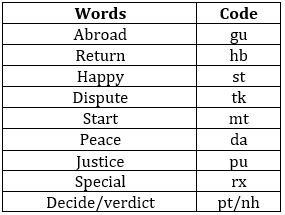
S1. Ans. (d)
S2. Ans. (d)
S3. Ans. (b)
S4. Ans. (d)
S5. Ans. (b)
Solutions (6-8):
Sol.
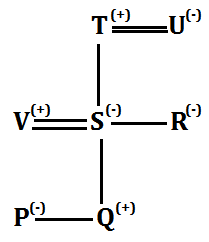
S6. Ans. (b)
S7. Ans. (b)
S8. Ans. (d)
S9. Ans. (e)
Sol.
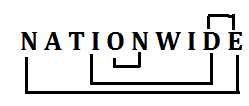
S10. Ans. (b)
S11. Ans.(a)
Sol.
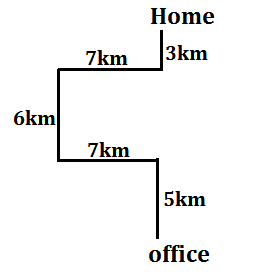
S12. Ans. (a)
Sol.

S13. Ans. (b)
Sol.

S14. Ans. (e)
Sol.
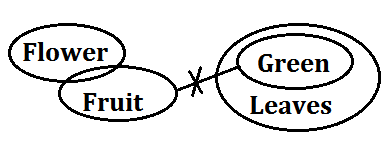
S15. Ans. (b)
Sol.
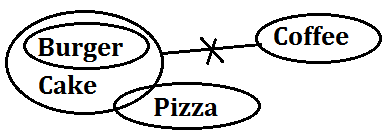


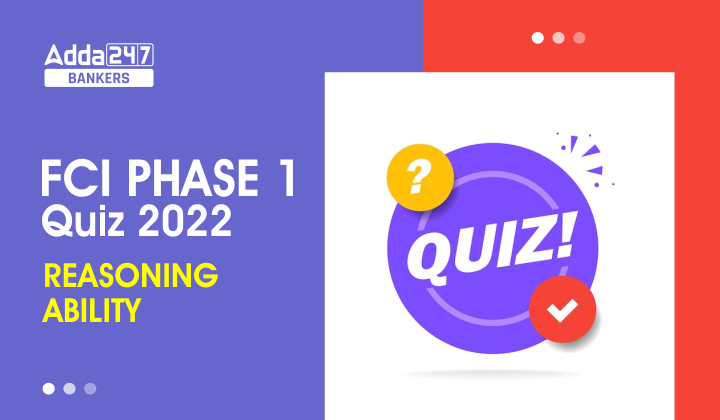
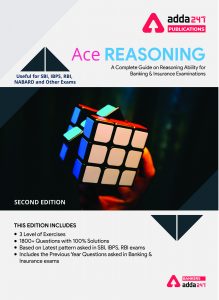

 GA Capsule for SBI Clerk Mains 2025, Dow...
GA Capsule for SBI Clerk Mains 2025, Dow...
 The Hindu Review October 2022: Download ...
The Hindu Review October 2022: Download ...
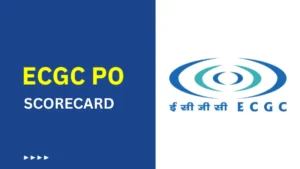 ECGC PO Scorecard 2025 Out, Check Marks
ECGC PO Scorecard 2025 Out, Check Marks




